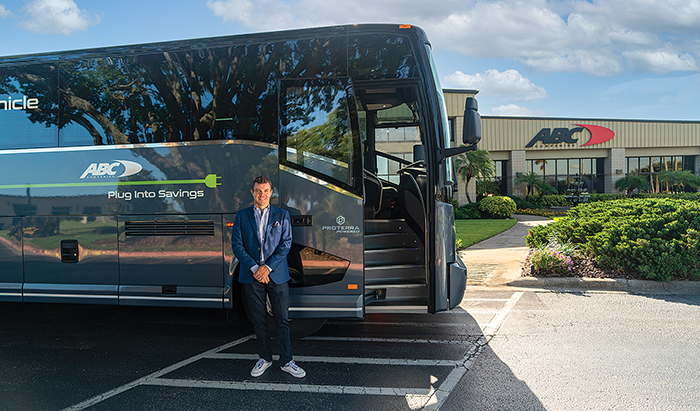
BUSRide recently spoke with Roman Cornell, president and chief commercial officer for ABC Companies. Cornell discussed ABC’s activities and priorities during the COVID-19 shutdown, the biggest challenges facing the motorcoach industry in 2021, and the future of the industry going forward.
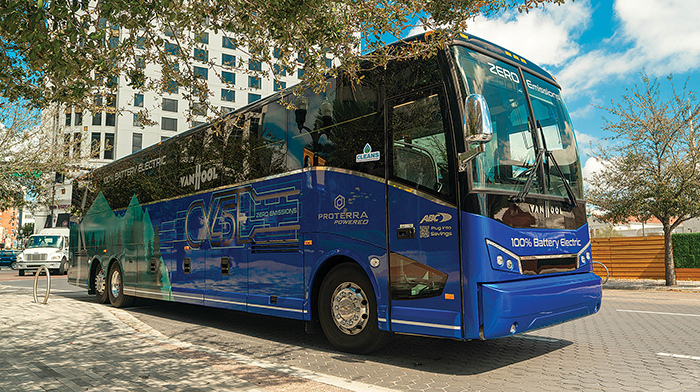
During the COVID downturn, where has ABC Companies focused its priorities?
Our focus has been on serving our customers – we are tied to their success. Their core business is our core business and unlike other suppliers, we can’t simply dim the lights and pivot to another industry. Since my family started ABC, we have been dedicated to the private motorcoach industry and that has not changed.
First, we launched the CLEANS products, services, and promotional tools. When we began looking for sanitization solutions for our customers, it was clear there were a number of viable options, with some being better for specific applications. We did not limit customers saying one product or approach was better than another, instead with CLEANS, we gathered several solutions which could layer upon each other, allowing customers to choose what best fit their operation.
We have also focused on providing resources to get riders comfortable getting back on the bus – while also helping our customers to ramp-up quickly as business returns to the motorcoach industry. This has meant preparing Return to Service documents, videos, and presentations, as well as consulting with our customers about right-sizing their fleets and reducing unplanned costs.
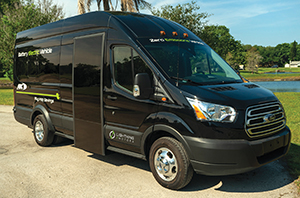 We have worked to understand the new needs our customers face, so we are ready. We know providing customers the flexibility and scalability they need as they adjust to control costs will be important. For example, when less parts were being ordered, we increased our parts inventory so operators could lean on us more as they reduced what they kept on their shelves. We also continued to grow our aftermarket parts options to keep cost-per-mile down. Our service locations remained open and available, including our mobile units, while following local guidelines. We are now working on a maintenance software system to help operators monitor cost-per-mile in real time. All these customer cost reduction initiatives are taking place while the ABC CustomerCare department maintains its 24/7 technical hotline.
We have worked to understand the new needs our customers face, so we are ready. We know providing customers the flexibility and scalability they need as they adjust to control costs will be important. For example, when less parts were being ordered, we increased our parts inventory so operators could lean on us more as they reduced what they kept on their shelves. We also continued to grow our aftermarket parts options to keep cost-per-mile down. Our service locations remained open and available, including our mobile units, while following local guidelines. We are now working on a maintenance software system to help operators monitor cost-per-mile in real time. All these customer cost reduction initiatives are taking place while the ABC CustomerCare department maintains its 24/7 technical hotline.
Our service strength and consistent availability over the last 12 months has allowed us to assist other manufacturers and tier 1 suppliers during this tough time as well. As a result, we have taken on maintenance and support roles for select organizations and suppliers acting as their service and support arms, using our North American footprint, which further strengthens our resources for our existing customers.
Finally, we have been researching and incorporating technologies and innovations we can bring to enhance and build the future of the private motorcoach industry.
We recently launched a new Specialty Vehicles & Technologies division (SVT) with the mission of using the latest in technology to provide our customers with a competitive advantage.
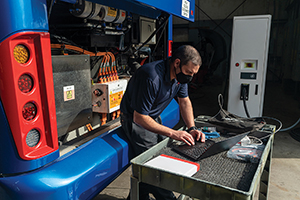 This has translated into new vehicles, namely the all-electric CX45E motorcoach and the ABC “Repowered” diesel to electric program. The CX45E is Van Hool’s first and only model exclusively designed and built for the North American market. With ABC Repowered, we have partnered with Lightning eMotors to repower diesel coaches into battery-electric buses via a fast-track battery electric conversion.
This has translated into new vehicles, namely the all-electric CX45E motorcoach and the ABC “Repowered” diesel to electric program. The CX45E is Van Hool’s first and only model exclusively designed and built for the North American market. With ABC Repowered, we have partnered with Lightning eMotors to repower diesel coaches into battery-electric buses via a fast-track battery electric conversion.
Other technologies launched under our new SVT division include integrated bi-polar ionization units that actively improve onboard air quality, solar panels which continuously charge low voltage systems, as well as further developing our ABC Connect telematics and monitoring services which now include electric vehicles.
Because we are a dealer and not a manufacturer, we are in a unique situation in that we can provide solutions to our customers without necessarily needing it to be a bus sale. Sometimes that means refurbishing existing equipment or developing a new solution that currently does not exist, but it always starts with listening to our customers and working together to find a solution. Serving our customers to make them successful is what we do – we grew up doing this. Our team, and my family, has been in this business for many years. It is not always about keeping a full factory – it is about relationships and keeping our customers healthy so we can all be successful.
In your estimation, what are the biggest challenges facing our industry today?
The sheer number of operators in our industry is both a strength, but also a challenge when generating an understanding of our industry and our needs with the government and public – especially at a time when we need a helping hand. Other industries have successfully utilized their numbers to generate locally driven relationships and grassroots initiatives to gain ongoing government support, we believe our industry can to..
We are a strong and impassioned industry, just look at how quickly we came together during the Motorcoaches Rolling 4 Awareness Rally on May 13, 2020. Although national coverage may have been less than anticipated, local coverage was more than most expected. The thousands of hours of local coverage as participants rolled out of their cities and states was incredible. This shows that when our industry presence in D.C. was not enough, our size and presence throughout the country is how we can educate our government and the public about our industry, and not just in a time of crisis.
After two stimulus packages in which our industry’s pleas in D.C. went unanswered, several operators, associations and suppliers worked from their states and communities up to the national level throughout the country to pass the CERTS Act. Built on the tireless efforts of many individuals including some of our customers, this became the single most supported bill out of D.C., demonstrating the power of activating our industry in their communities. Even so, that package was ultimately cut down to 20 percent of the original request and as of this interview, not a single dollar has been issued from that package.
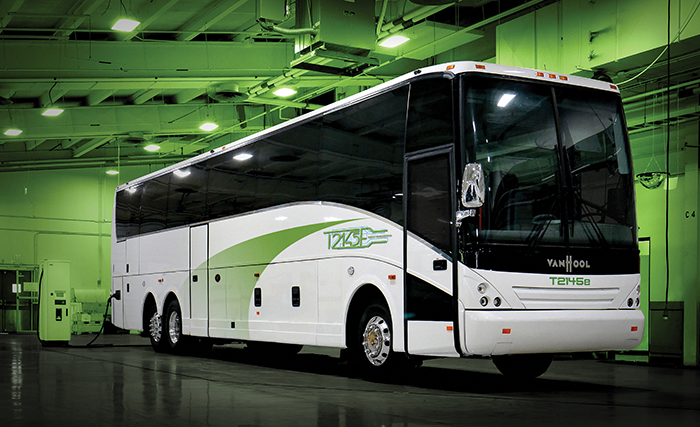
Engaging with government at a time of crisis is not enough, we must continue to educate and be involved locally, promoting our industry so we will be understood and included from the start as the government makes decisions that impact our industries operators, employees, and their families. It starts in every community and rolls up to D.C.
Now is the time for our industry to make the important changes required to ensure it is never left out again. We are doing more than just encouraging this approach, we have made changes ourselves. We are reallocating spending from promoting ABC with various shows, events advertising, and sponsorships, to supporting our customers directly and promoting our industry with local government. Although not a traditional approach, investing in your customers and the industry before promoting your own organization. Educating and engaging with the government and public as it emerges from the shutdown is the right thing to do at the right time. And, we are committed to working with others who share the same desire to promote our industry first, and ourselves second.
We believe another challenge facing our industry is the digitalization of the travel industry that is raising customer expectations for seamless and transparent transportation solutions. The consumer is dictating how they want to travel, and they are using digital platforms to determine who they travel with. Our industry must be easily accessible through online platforms and deliver a simple, but seamless interface. Although we have seen many operators become very proficient here, our industry in total is not ready for the power the individual passenger expects to have when deciding how they will travel. The motorcoach industry needs to be as easy to do business with as other forms of transportation, or we will risk losing to digital convenience.
This digitalization can move from a challenge to an opportunity if we learn from other operators and industries who have been actively promoting themselves online and via social media. We are in a small window of time where COVID is causing riders to rethink how they travel. At the same time, motorcoaches have more luxury and convenience features than ever before. But the general public does not know that. As an example, motorcoaches have superior air circulation, cleanliness, safety records, and lower carbon emissions than most ground transportation – we should be leveraging those facts to promote our industry. If there is one thing our industry should learn from COVID and its fallout, it is this: do not sit back and wait. Do not wait for the phone to ring. Get out there, think outside the box, and keep pushing your business and our industry.
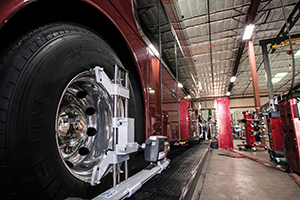 Looking forward, how does ABC see the future of the motorcoach industry?
Looking forward, how does ABC see the future of the motorcoach industry?
We are fortunate in that we have a long history with this great industry. Our founding principals have served us well, by focusing on what we can do to give our customers what they need to be successful.
We are very optimistic because demand for coach travel has not gone away. In fact, we believe the pent-up demand has increased. As state and local governments begin to ease restrictions, people will want to begin traveling again. People have short memories, and they have a need to be together. Cruise ships are going to continue. Football games are going to continue. Life is going to get back to normal, and so the bus business will return – but with some changes.
I also think this situation will teach people to run their businesses in a more streamlined way, as it will likely bring a focus on companies which have too much debt.
ABC is going to come out of this focused and stronger, with our clients being able to access more products than ever allowing them to diversify their own companies. We have used the slowdown to build a portfolio of products and services to be able to better serve more of our customers’ businesses. We can now provide solutions ranging from 12-passenger vans to 80-passenger double-decker buses. We can provide internal combustion engine (ICE) solutions as well as battery-electric solutions for all these vehicles.
We have embraced the coming electrification of passenger vehicles. Initially it was a handful of customers asking us for zero-emission solutions, but that is exploding as public transit suppliers, government agencies, corporations and more have committed to various carbon reduction goals. While there is still much to do before battery-electric vehicles become as commonplace as ICE-powered vehicles, all-electric propulsion is not going away. With our current technology, electric vehicles have become the better solution for certain customer applications. The production Van Hool CX45E’s delivered earlier this year are already delivering incredible results.
We will continue to use our new SVT division to identify technologies and innovations that can keep our industry and customers a step ahead. Coupled with our culture of serving customers first, this will position ABC Companies to grow with the industry as the market begins to return. We are improving our company and bringing our customers along with us.
COVID has been a painful experience, but also a tremendous learning opportunity. We are more focused than ever and excited to help our customers emerge stronger in the new normal.
